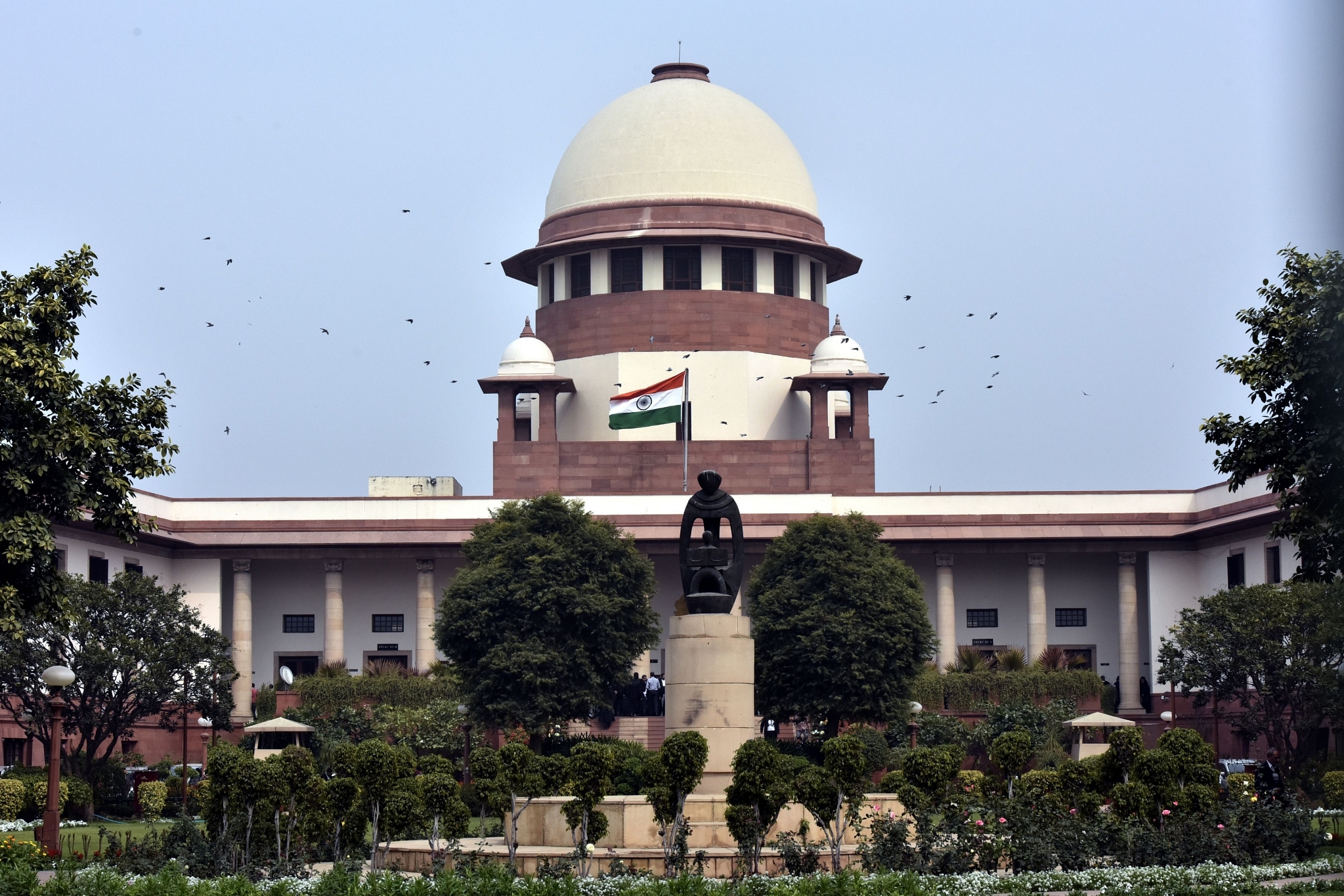Insta
‘Lawyers Keep Filing Petitions On What They Feel Is Possible; Concept Of PIL Forgotten’: Supreme Court

Supreme Court of India (Sonu Mehta/Hindustan Times via Getty Images)
The Supreme Court on Thursday (30 April) expressed its discontent with a slew of PILs seeking wide-ranging directions to the Centre on various issues involving the nationwide lockdown. The top court said the whole concept of the PIL has been lost.
A bench headed by Justice N V Ramana and comprising Justices S K Kaul and B R Gavai said the concept of the PIL has been forgotten, as lawyers keep filing petitions on "what they feel is possible". "This is not public interest litigation."
The observation from the top court came on a clutch of PILs citing gaps in the RBI circular issued on 27 March, granting a three-month moratorium on repayment of term loans by borrowers, which meant they would not have to pay loan EMI instalments during the moratorium period.
The PILs were junked by the bench, saying there is no aggrieved party before it. Besides, how would the lawyer justify that it was a bad scheme, it asked.
The court also noted that none of the lawyers represented the actual borrower. "How can you file Article 32 petition? Are you an aggrieved party in this petition?" queried Justice Kaul.
The lawyer replied the scheme will affect everyone. "How are you saying you are an affected party?" Justice Kaul repeated his query.
Another petitioner argued that the banks were not implementing the RBI's 27 March circular on EMI moratorium and many were aggrieved. The bench said "we direct the Reserve Bank of India to ensure implementation of the Circular on 27 March, in its letter and spirit."
In a separate PIL, a petitioner sought direction from the top court to universalise the public distribution system and provide ration to those who do not have ration cards. The top court said it has already asked the Centre to examine the matter.
In 1986, the then Chief Justice P N Bhagwati introduced PIL to the Indian judicial system. The original idea was to provide access to justice to the marginalised citizens. It allowed an individual or NGO to approach the top court seeking protection of rights of the downtrodden. But by the mid-1990s a flurry of high-profile cases were filed using the PIL instrument.
Since the beginning of the lockdown, the apex court is conducting hearing through video-conferencing and a chunk of its time has been devoted to hearing PILs on varied issues -- free treatment and free medical tests for coronavirus, medical issues connected with treatment, economy, finance and wages for migrant workers -- during the lockdown.
In many cases, the apex court has asked the Centre to consider the suggestions made in the PILs.
This news has been published via Syndicate feed. Only the headline has been changed.
Support Swarajya's 50 Ground Reports Project & Sponsor A Story
Every general election Swarajya does a 50 ground reports project.
Aimed only at serious readers and those who appreciate the nuances of political undercurrents, the project provides a sense of India's electoral landscape. As you know, these reports are produced after considerable investment of travel, time and effort on the ground.
This time too we've kicked off the project in style and have covered over 30 constituencies already. If you're someone who appreciates such work and have enjoyed our coverage please consider sponsoring a ground report for just Rs 2999 to Rs 19,999 - it goes a long way in helping us produce more quality reportage.
You can also back this project by becoming a subscriber for as little as Rs 999 - so do click on this links and choose a plan that suits you and back us.
Click below to contribute.
Latest